Space
-
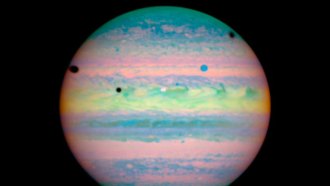 Planetary Science
Planetary Science50 years ago, scientists found a new moon orbiting Jupiter
In 1974, astronomers discovered Jupiter’s 13th moon. They now know of at least 95 moons and have launched missions to study some up close.
-
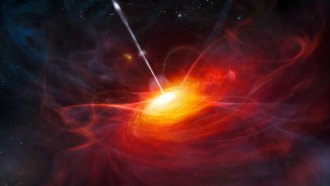 Space
SpaceA distant quasar’s black hole is oddly huge for its galaxy
The black hole’s mass is over half that of all the stars in the surrounding galaxy, a record for any galaxy hosting a quasar.
By Ken Croswell -
 Science & Society
Science & SocietyUsing AI, historians track how astronomy ideas spread in the 16th century
A new AI machine learning technique helped historians analyze 76,000 pages from astronomy textbooks spanning nearly two centuries.
-
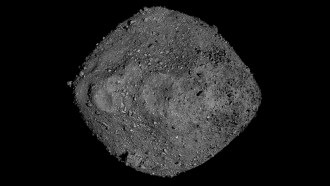 Space
SpaceA near-Earth asteroid offers clues to one dark matter theory
Data from the OSIRIS-REx mission to Bennu place a ceiling on the strength of a hypothetical fifth force that could explain dark matter’s origins.
-
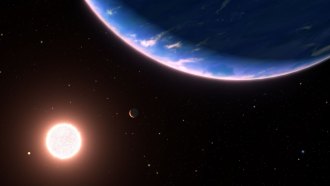 Space
SpaceJWST spots the first known ‘steam world’
Astronomers have found a world shrouded in an atmosphere of water vapor, orbiting a star 100 light-years away.
-
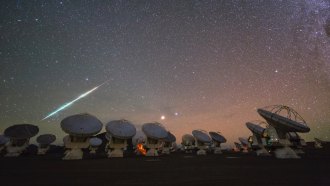 Planetary Science
Planetary ScienceThe cataclysmic origins of most of Earth’s meteorites have been found
Just a few smashups in the asteroid belt may account for 70 percent of Earth’s meteorites, limiting what’s known about our solar system’s history.
-
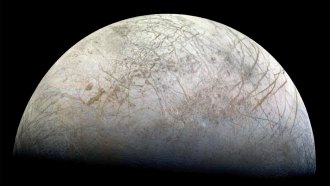 Planetary Science
Planetary ScienceNASA’s Europa mission is a homecoming for one planetary astronomer
Over her long career, Bonnie Buratti has seen the search for life in the solar system go from a joke to a flagship mission.
-
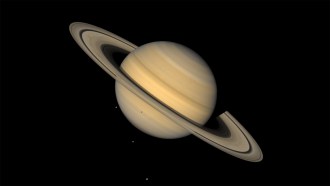 Planetary Science
Planetary ScienceSaturn’s first Trojan asteroid has finally been discovered
Saturn joins the sun’s other giant planets that have Trojans, space rocks that orbit along the same path.
By Ken Croswell -
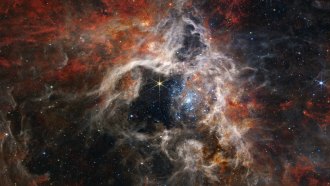 Astronomy
AstronomyRunaway stars could influence the cosmos far past their home galaxies
Dozens of stars fleeing a neighbor of the Milky Way suggest these escapees could have an outsized influence on their cosmic surroundings.
-
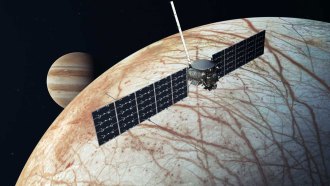 Planetary Science
Planetary ScienceEuropa Clipper has launched to solve an alien mystery
Launched October 14, the spacecraft will repeatedly buzz Europa in search of water, energy and organic compounds.
-
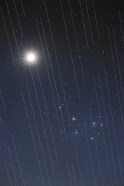 Space
Space50 years ago, satellites threatened astronomers’ view of the cosmos
As satellite launches ramp up and the spacecraft clog the skies, astronomers fear for their data.
-
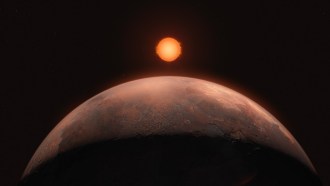 Astronomy
AstronomyBarnard’s star has at least one planet orbiting it after all
After decades of searching, a telltale gravitational wobble points to an exoplanet orbiting the nearby red dwarf every 3.15 days.
By Sid Perkins